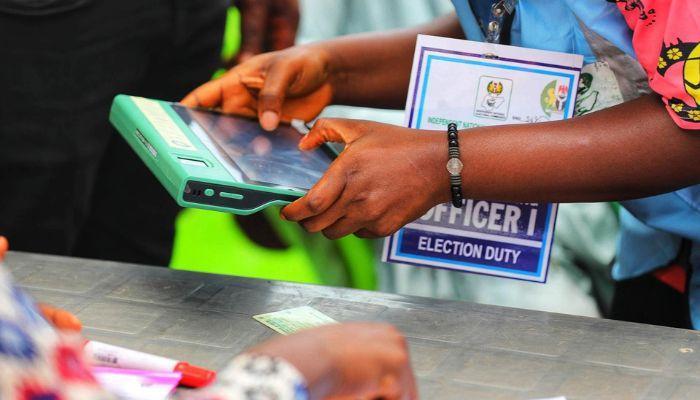In Nigeria, access to finance is a major, long-standing obstacle faced by citizens, micro, small and medium enterprises (MSMEs).
According to the Manufacturers Association of Nigeria (MAN), in 2019, only 6.7% of enterprises reported having a loan or active line of credit.
Access to credit in Nigeria has historically favoured large corporations and the wealthy, leaving millions excluded. The situation has left many young entrepreneurs frustrated.
Experts say credit access is crucial for economic growth, especially in times of high inflation and rising living costs. While digital lenders have made strides, thereŌĆÖs still a long way to go.
However, the narrative has been changed by President Bola Tinubu, who, in a bid to improve access to credit for citizens and critical sectors of the economy, aiming to stimulate national economic growth, introduced the Nigerian Consumer Credit Corporation (CREDICORP).
Founded in April 2024, the agency is spearheading efforts to enhance access to consumer credit for Nigerians, aiming to empower individuals, stimulate local industries and drive economic growth.
Read also:┬ĀCREDICORP want Kano stakeholders to adopt cultural re-orientation in credit system
After the establishment of the agency, the federal government released N100 billion in funding to the Nigerian CREDICORP.
The financial injection marks the beginning of a nationwide consumer credit scheme aimed at economically active Nigerians, starting with 500,000 civil servants.
According to Uzoma Nwagba, CEO of CREDICORP, immediately the funding was received, and the disbursement process began immediately.
The first phase of this initiative saw 15,000 civil servants being credited in each round, continuing until the target of 500,000 civil servants was reached.
After this initial phase, the scheme will be extended to include other eligible members of the public, broadening its impact on NigeriaŌĆÖs economy.
In a press release issued in Abuja, CREDICORP announced that the disbursement of consumer credit to economically active Nigerians had officially commenced through its network of PFIs.
Among the first wave of institutions involved is Credit Direct, NigeriaŌĆÖs largest lender to civil servants and a subsidiary of the FCMB Group.
This partnership, the institution said, aims to accelerate access to consumer credit, particularly for civil servants nationwide.
Read also:┬ĀCREDICORP empowers 50,000 new car owners with N100bn credit scheme
Reforms make CREDICORP essential to deepening loan access
President Tinubu, who took office in May 2023, campaigned on economic reforms, including expanding credit access to boost economic growth.
At the inception of the organisation, President Tinubu said his administration expects CREDICORP to strengthen the confidence of the financial system, expand credit access, and support underserved groups, such as women and youth.
The government said the corporation will drive growth, re-industrialisation, and better living standards for the people.
The Tinubu administration acknowledged the challenge faced by citizens occasioned by its economic reforms, and CREDICORP is expected to deepen citizensŌĆÖ access to loan and credit facilities.
Experts revealed that only three percent of Nigerian workers accessed formal consumer credit in the past year, exposing the significant gap in NigeriaŌĆÖs credit system.
They stated that for consumer credit to make a real difference in the economy, it must reach 50 percent of the countryŌĆÖs GDP, amounting to N176 trillion. At present, the country falls short, with a credit gap of N141.3 trillion.ŌĆØ
Recently, CREDICORP partnered with Autochek to unveil a nationwide auto financing programme aimed at empowering 50,000 first-time car owners.
The initiative seeks to make vehicle ownership more accessible to Nigerians through flexible financing options.
The initiative was officially launched with a handover ceremony in Abuja recently, where 20 beneficiaries received their vehicles, marking a significant step towards expanding access to affordable transportation nationwide.
Nwagba, Managing Director and Chief Executive Officer of CREDICORP, stated at the handover ceremony that with affordable financing, a single-digit interest rate, and a seamless application process, car ownership would no longer be a dream but an achievable reality for many Nigerians.
Nwagba noted that high costs and limited financing had made vehicle ownership difficult for many Nigerians.
He said TinubuŌĆÖs administration had allocated a budget of N100 billion for this initiative, aiming to support 50,000 beneficiaries.
Read also:┬ĀCREDICORP unveils beneficiaries of Ōé”20 bn mobility credit fund for locally made vehicles
He stated that CREDICORP plans to finance over 10,000 vehicles in the coming months, with a long-term goal of extending consumer credit access to 50% of NigeriaŌĆÖs working population by 2030.
ŌĆ£The orientation of the average Nigerian is that credit is a bad thing, that you go to borrow money when you are in a bad shape, that you go to borrow money when things are bad.
ŌĆ£In fact, people are ashamed of borrowing money, and they even pray that you will be the lender and not the borrower, that you will never borrow money. But the truth about credit is that credit is actually not a bad thing. Credit is something that enhances your life,ŌĆØ Nwagba said.
Speaking at the one-year anniversary brief of CREDICORP, Nwagba said no fewer than 83,236 Nigerians are currently accessing the federal governmentŌĆÖs consumer credit facility nationwide through the agency.
He revealed that of the number, 50,438 are non-government workers and 32,798 are public sector employees.
A further breakdown of the number shows artisans topping the table with 16,769 beneficiaries in the non-public sector and 11,451 teachers in the public sector.
Nwagba expressed delight with the interest shown in the scheme by Nigerians, saying he was optimistic that the number of beneficiaries will before the end of today rise to 90,000.
The agency further stated that apart from the 11,451 teachers who have accessed the loans in the public/ government sector, 8,671 paramilitary personnel, 457 administrative staff members and 4,109 doctors have also benefited.
Beneficiaries in the non-government sector include 13,618 employees in private firms, 13,182 traders and 6,869 entrepreneurs.
Nwagba explained that the government is putting its money out as wholesale capital at concessionary rates or credit guarantees.
Wholesale capital allows financial institutions to borrow from CREDICORP and repay later, while credit guarantees involve the government sharing the lending risk
Read also:┬ĀCREDICORPŌĆÖs PowerHer774: A giant leap, but Nigeria must dream bigger for Women
ŌĆ£If people donŌĆÖt pay you back, we will share the risk partially with you,ŌĆØ Nwagba said, indicating that such measures are designed to make lending safer and more attractive for financial institutions.
He stressed that even though interest rates for the loans are determined by the participating financial institutions, support from CREDICORP helps them to offer lower or concessionary rates.
Nwagba warned that defaulting on repayments would result in damaged credit scores.
In line with its first anniversary, the agency also stated that in order to facilitate the growing scale of the programme, it has partnered with 23 financial institutions and 150 local manufacturers.











